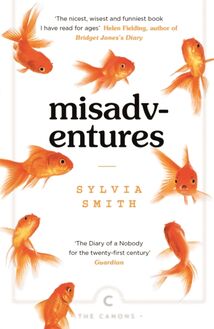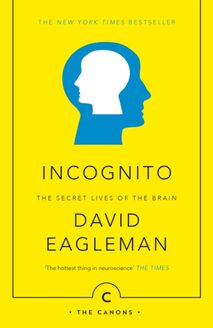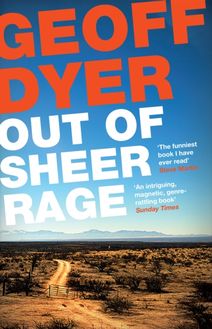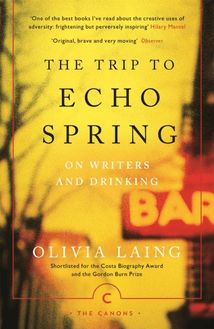-
 Univers
Univers
-
 Ebooks
Ebooks
-
 Livres audio
Livres audio
-
 Presse
Presse
-
 Podcasts
Podcasts
-
 BD
BD
-
 Documents
Documents
-
- Cours
- Révisions
- Ressources pédagogiques
- Sciences de l’éducation
- Manuels scolaires
- Langues
- Travaux de classe
- Annales de BEP
- Etudes supérieures
- Maternelle et primaire
- Fiches de lecture
- Orientation scolaire
- Méthodologie
- Corrigés de devoir
- Annales d’examens et concours
- Annales du bac
- Annales du brevet
- Rapports de stage
La lecture à portée de main
Vous pourrez modifier la taille du texte de cet ouvrage
Découvre YouScribe en t'inscrivant gratuitement
Je m'inscrisDécouvre YouScribe en t'inscrivant gratuitement
Je m'inscrisEn savoir plus
Vous pourrez modifier la taille du texte de cet ouvrage
En savoir plus

Description
Informations
| Publié par | Canongate Books |
| Date de parution | 02 juin 2022 |
| Nombre de lectures | 0 |
| EAN13 | 9781838857127 |
| Langue | English |
Informations légales : prix de location à la page 0,0400€. Cette information est donnée uniquement à titre indicatif conformément à la législation en vigueur.
Extrait
Dame Margaret Drabble was born in Sheffield in 1939 and was educated at Newnham College, Cambridge. She is the author of twenty highly acclaimed novels. She has also written biographies, screenplays and was the editor of the Oxford Companion to English Literature . She was appointed CBE in 1980 , and made DBE in the 2008 Honours list. She was also awarded the 2011 Golden PEN Award for a Lifetime s Distinguished Service to Literature. She is married to the biographer Michael Holroyd.
Also by Margaret Drabble
FICTION
The Garrick Year
The Millstone
Jerusalem the Golden
The Waterfall
The Needle s Eye
London Consequences (group novel)
The Realms of Gold
The Ice Age
The Middle Ground
The Radiant Way
A Natural Curiosity
The Gates of Ivory
The Witch of Exmoor
The Peppered Moth
The Seven Sisters
The Red Queen
The Sea Lady
The Pure Gold Baby
The Dark Flood Rises
SHORT STORIES
A Day in the Life of a Smiling Woman: The Collected Stories
NON-FICTION
Wordsworth (Literature in Perspective series)
Arnold Bennett: A Biography
For Queen and Country
A Writer s Britain
The Oxford Companion to English Literature (editor)
Angus Wilson: A Biography
The Pattern in the Carpet
The Canons edition published in Great Britain in 2022 by Canongate Books
canongate.co.uk
This digital edition first published in 2022 by Canongate Books
First published in hardback in Great Britain in 1963 by
Weidenfeld & Nicolson
First published in paperback in 1967 by Penguin Books Ltd
Copyright Margaret Drabble, 1963
The right of Margaret Drabble to be identified as the author of this work has been asserted by her in accordance with the Copyright, Designs and Patents Act 1988
British Library Cataloguing-in-Publication Data
A catalogue record for this book is available on request from the British Library
ISBN 978 1 83885 711 0
eISBN 978 1 83885 712 7
For Clive
CONTENTS
1 The Crossing
2 The Wedding
3 The Reception
4 The Move
5 The Invitation
6 The Party
7 The Next Invitation
8 The Next Party
9 The Information
10 The Convergence
11 The Collision
Tis just like a summer bird-cage in a garden:
the birds that are without despair to get
in, and the birds that are within despair and
are in a consumption for fear they shall never
get out.
John Webster
1
THE CROSSING
I had to come home for my sister s wedding. Home is a house in Warwickshire, and where I was coming from was Paris. I was keen on Paris, but will refrain from launching into descriptions of the Seine. I would if I could, but I can t. I like the way things look, but can never remember them when I need to. So I ll leave Paris at that. I was leaving to go home to be a bridesmaid at the wedding of my sister Louise. And I didn t mind leaving, either: all the foreignness that seemed so enchanting when I first went in July had begun to drive me to distraction. Every time somebody pinched me on the M tro I felt like screaming, and as for things like the lavatory paper and the price of chocolate and the brisk, bare-kneed, smart little girls I used to take for English conversation - well, I felt I d really had enough. I d only been there for two months, but it seemed like far longer. So when the letter arrived from Louise asking me to go and bridesmaid, I heaved a sigh of relief and bought my ticket. Also, I felt that it was time I stopped wasting time. I don t know why I hate wasting time so much.
I hadn t really been doing anything in Paris. I had gone there immediately after coming down from Oxford with a lovely, shiny, useless new degree, in a faute-de-mieux middle-class way, to fill in time. To fill in time till what? What indeed? It was quite pleasant, teaching those birdy girls, but it wasn t serious enough for me. It didn t get me anywhere. So when Louise wrote, the thought of England rose before me, gloomy, cold, but definitely serious. And as I wanted to be serious, I bought my ticket home, said goodbye to the girls and my landlady, and turned my thoughts to the Appointments Board, and National Insurance, and other such eminently serious subjects. I thought about them all the way to Calais, through the sandy flats, as I chewed a garlic-laden ham roll. I thought about jobs, and seriousness, and about what a girl can do with herself if over-educated and lacking a sense of vocation. Louise had one answer, of course. She was getting married. Moreover she was marrying a very wealthy and, in a minor way, celebrated man. It seemed to be one way of escaping the secretarial course-coffee bar degradation that had been creeping up on her ever since, two years ago, she too had left the esoteric masonic paradise of Oxford.
On the other hand I wouldn t have married Stephen Halifax had he been the last exit open to me. I didn t know why I disliked him so much: I wasn t even sure if what I felt was dislike. Perhaps it was partly fear. I was intimidated and inhibited by the fact that he was a novelist, with four novels to his credit, all of which had received rather flattering reviews. Success is always scaring, particularly to the ambitious. Also, I hated his books. They were horrible books, but good as well as horrible: if one hadn t known him one would have assumed that their author was sour, middle-aged and queer, whereas Stephen is sour, thirty, and married to my sister, whatever that may or may not mean. All four of them are full of social sneers and witty, thin-lipped observations. He never makes a joke. I dislike books without jokes. Even bad Victorian ones are better than nothing. I don t think Stephen likes jokes at all. The reviews say he is a social satirist, and talk about his delicate perception and keen wit, but for me they can keep them. He behaves like his books as well: when I talk to him, I always feel that I am badly dressed and have the wrong accent. I am sure this is what he does think, but as he thinks the same about everyone, his opinion is hardly objective. Nobody escapes. Everyone is either ridiculously rich, or ridiculously poor, or ridiculously mediocre, or ridiculously classy. He leaves no possibility of being in the right, unless he means to leave himself as a standard, which would be logical, as he is almost entirely negative. He looks grey. It must be his skin, because his hair is a normal shade of brown. He looks very inconspicuous and distinguished and grey.
I couldn t imagine why Louise was marrying him. I knew she had been seeing quite a lot of him since she left Oxford and went to live in a flat off the Fulham Road, but I had never thought it would come to this. I could see that he was quite a nice sort of person to have dinner with from time to time, as one would be able to have all the expensive things on the menu, but as for marrying - and as for Louise marrying. My sister, I should say, is an absolutely knock-out beauty. She really is. People are silent when she enters rooms, they stare at her on buses, they look round as she walks down the street. I don t know where she gets it from. My mother is quite pretty, but in a twittering, soft sort of way, and so am I, I suppose, whereas Louise has a real old aristocratic predatory grandeur. As tags go, she is grande dame where I am jeune fille , and she leads all her life to match it. She has a very pale skin and fabulous eyebrows and black hair and a tall, stiletto sort of figure and so forth. I thought to myself, as the train went past all the back views of houses that mean Calais, that perhaps Stephen was marrying her because she never looked ridiculous. At the worst he could call her aquiline and intense, but even that sounds quite impressive. Perhaps he wanted a wife to be a figurehead to his triumphal car, a public admiring ornament to his house. A hostess. But I couldn t see what there was in that for her; she was never a great one for playing second fiddle. On the contrary, she was inclined to be ruthless about getting what she wanted. I supposed it was possible that she wanted Stephen. It occurred to me as the train began to slow down that perhaps she was in love with Stephen, and then it occurred a second afterwards that since this was such an obvious explanation it would certainly have occurred earlier if true. So I discounted the concept of love.
At least with regard to old Louise. Love. Love. I thought idly of Martin who had bidden me farewell on the Gare du Nord at seven-thirty that morning. It was nice of him to have got up. I had been sorry to leave him, and we had both clung a bit, but not significantly. I was glad, really, that there was a certain amount of wrench involved in leaving. It made the fact that I was going seem more of a decision and less of a drift. I thought how much less impossible it was that I should marry Martin or almost anyone than it was that Louise should marry Stephen Halifax. What a name. Stephen Halifax. At least I would find out at this wedding whether it was a pseudonym or not. Louise said it wasn t but it didn t sound at all real to me.
The train stopped. With a rush I felt terribly sad about French trains and notices saying Ne te penche pas au Dehors (is that what they do say? TE? Why not vous ?): and as immediately forgot my sadness in the wave of fury that overwhelms me during the pushing, banging, queueing and waiting that accompanies getting off the train, through the Customs and on to the boat. I never get a porter, mainly because I hate being parted from my luggage, and so suffer all the irritation of battered legs, aching arms and hair in my eyes with no hand free to push it out of the way. I don t know why I punish myself so, but I always do. I m a menace on holidays or journeys, I can t enjoy myself unless I do everything the hard way. Perhaps I do it on purpose, because the feeling of relief and spaciousness that succeeds sweaty exhaustion the minute one gets on the boat is wonderful and can only be savoured after undergoing the full initiation of effort. Nothing enchants me a
-
 Univers
Univers
-
 Ebooks
Ebooks
-
 Livres audio
Livres audio
-
 Presse
Presse
-
 Podcasts
Podcasts
-
 BD
BD
-
 Documents
Documents
-
Jeunesse
-
Littérature
-
Ressources professionnelles
-
Santé et bien-être
-
Savoirs
-
Education
-
Loisirs et hobbies
-
Art, musique et cinéma
-
Actualité et débat de société
-
Jeunesse
-
Littérature
-
Ressources professionnelles
-
Santé et bien-être
-
Savoirs
-
Education
-
Loisirs et hobbies
-
Art, musique et cinéma
-
Actualité et débat de société
-
Actualités
-
Lifestyle
-
Presse jeunesse
-
Presse professionnelle
-
Pratique
-
Presse sportive
-
Presse internationale
-
Culture & Médias
-
Action et Aventures
-
Science-fiction et Fantasy
-
Société
-
Jeunesse
-
Littérature
-
Ressources professionnelles
-
Santé et bien-être
-
Savoirs
-
Education
-
Loisirs et hobbies
-
Art, musique et cinéma
-
Actualité et débat de société
- Cours
- Révisions
- Ressources pédagogiques
- Sciences de l’éducation
- Manuels scolaires
- Langues
- Travaux de classe
- Annales de BEP
- Etudes supérieures
- Maternelle et primaire
- Fiches de lecture
- Orientation scolaire
- Méthodologie
- Corrigés de devoir
- Annales d’examens et concours
- Annales du bac
- Annales du brevet
- Rapports de stage




















